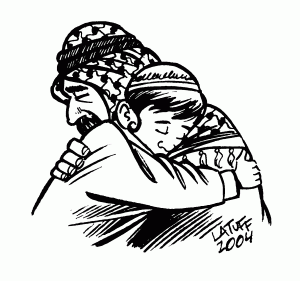
For some time, my hand hovered over the enter key to respond to different opinions, in many instances so called Christian opinions about this topic. And each time God’s grace prevented me to fire off a “bomb”. It is not in my nature to ruffle feathers. But the different responses made me realise that I need to develop my own response. Since then, I reflected on what I can say. Must I join the band wagon of each of the different responses – in most cases supporting either the Palestinian communities of Gaza or Israel, who see themselves as “God’s chosen people”? And while reflecting on the intensity of different opinions that flew past my screen which increasingly felt uncomfortable with them. Thus, after many moons of reflecting I am trying to solidify my stance.
- Since Jesus gave his heart to me, I underwent a heart transplant. The Apostle Paul in many letters talks about this principle. I have died on the cross and am resurrected to a new life. I am a new man in Christ. As such I belong to the Kingdom of God. The kingdom of God that the four gospels are talking about. Again and again, we hear Jesus talking of the Kingdom of God and its principles. My loyalty is thus not determined anymore by a government’s opinion, but by the Kingdom of God’s opinion.
- If I make this confession, the question is of course what it implies. I think the Beatitudes provide us with guidance. Many preachers indicated that the Beatitudes are similar to the principles/constitution a Christian must follow. What are those principles? Being poor in the spirit, mourning, meek, hungry and thirsting for righteousness, merciful, pure in heart, peacemakers, persecuted because of righteousness, when people insult you, persecute you and falsely say all kinds of evil against you [1]. These are principles for which Jesus said, “Blessed are you.” These are principles that need to be followed through in my interactions with all people.
- Moreover, what is the example Jesus set himself in his relationship with other people? Did he allow governmental principles to determine what he does? No. One of the important verbs in the Gospels describing Jesus’ relationships is the verb σπλαγχνίζομαι (splachnizomai) which is difficult to translate because of its intense meaning. If one can, it refers to an intense compassion physically felt in your gut. It is often described to indicate Jesus’ compassion to different people crossing his road, e.g., Matt 9:36; 14:14; 15:32; Mark 6:34; 8:2; 9:22; Luke 7:13; 15:20 [2].
- More importantly, the other New Testament writers support these opinions, culminating in the word of the apostle Peter in 1 Peter 2: 21 which indicates that we need to follow in Jesus’ footsteps. This is our calling.
Looking at the above I sometimes cry out not noticing it in responses of Christians towards the Palestinian people who have been cut off from basic needs, killed, wounded and property destroyed. They are suffering beyond human understanding. I am lately not seeing any comments about the misery of hostages who are still alive and being brutally held in dire circumstances. They are the real victims whose misery is extended beyond understanding. I am worried about a political engagement of Christians, trying to reason (on historical grounds) in favour of Israel and them being “God’s chosen People”. I wonder where we would have found Jesus if he lived today? Where would we find him?

Part of the problem is of course some reasoning coming from the roots of a “militaristic” Christianity which has damaged the integrity of the Christian faith ever since Ceaser Constantine painted a cross on his soldiers’ shields many years ago. Since then, the dance of Christians with political concepts has started. The sanctification of the use of might, the use of power and armies using the “In hoc signo” attitude. It culminated in the Crusades and many wars which were justified or sanctified. And in essence, distorting what we are called to. We are not called to support any other opinion, but the Kingdom of God.
My σπλαγχνίζομαι lies with the Palestinian people and the hostages. And I can’t see how I can participate in any other discussion but siding with them. My message to any other opinion is: In the name of God, stop! Think very well about why you are taking sides.
Dear Lord Jesus, please help me, as a citizen of the Kingdon of God follow through on the principles and characteristics of your kingdom. Prevent me from becoming heartless in this debate. We pray for the victims which is created by power-hungry political forces. Amen.

[1] The New International Version (Grand Rapids, MI: Zondervan, 2011), Mt 5:2–12.
[2] John Frederick, “Mercy and Compassion,” ed. Douglas Mangum et al., Lexham Theological Wordbook, Lexham Bible Reference Series (Bellingham, WA: Lexham Press, 2014).